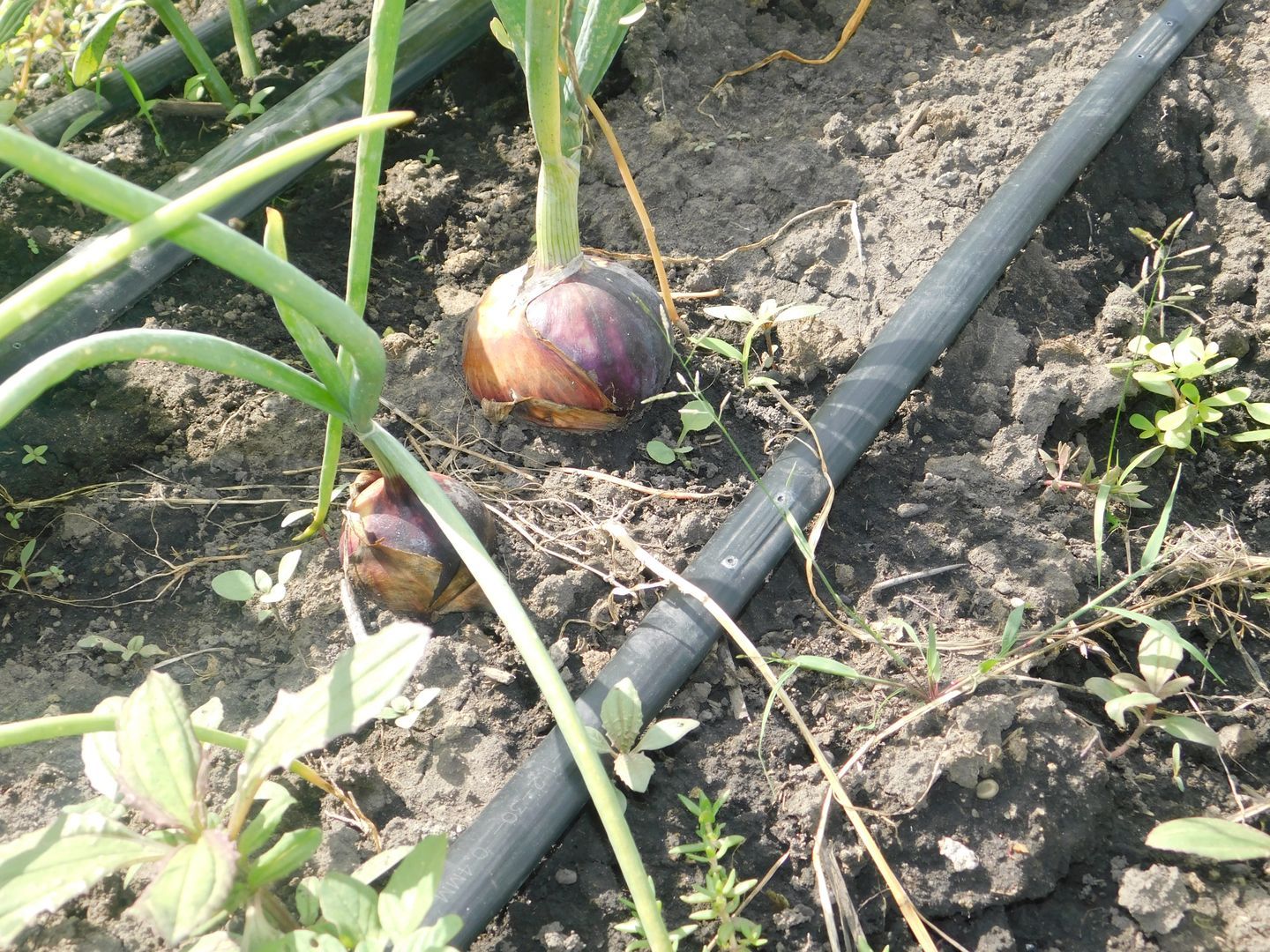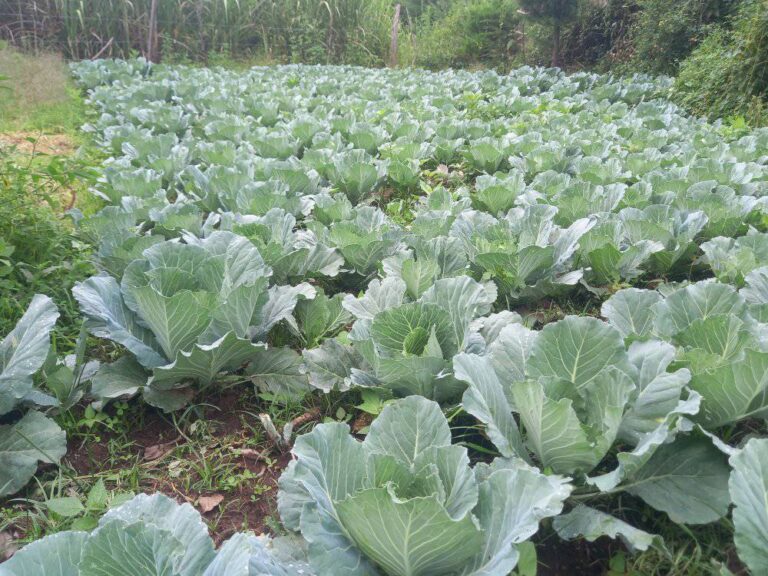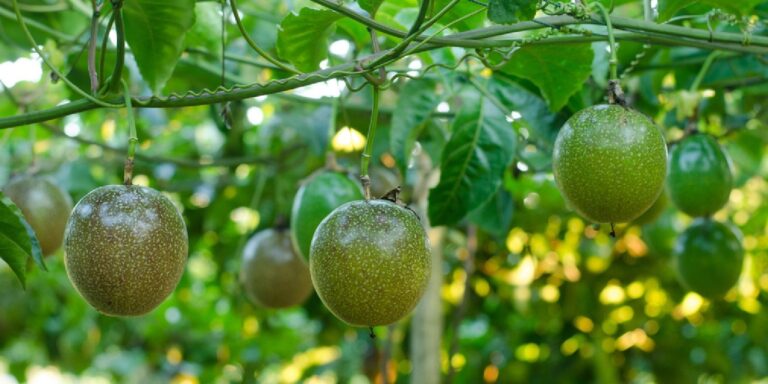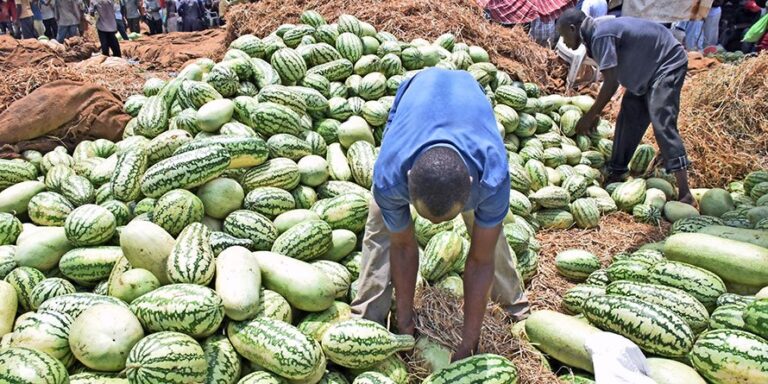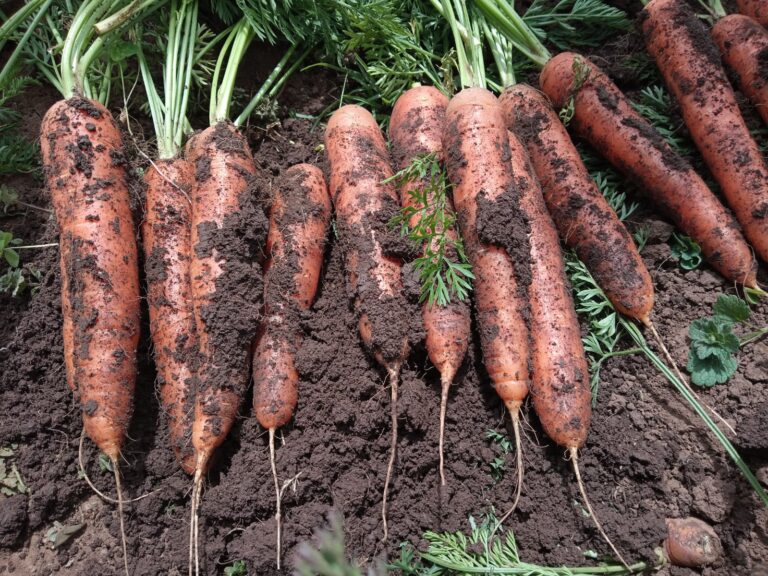What Is The Best Fertilizer For Onions?
Onions require proper fertilization for optimal growth and bulb development. Applying fertilizer at the right time and in the correct ratio of nutrients is crucial. Fertilizers containing nitrogen, phosphorus, and potassium are essential for onion growth.
A balanced fertilizer NPK (10-20-10) is recommended at planting to establish a healthy root system. After 3 weeks, straight nitrogen (21-0-0) should be applied every 2-3 weeks to promote foliage growth.
Organic options like well-rotted manure and compost can provide important nutrients.
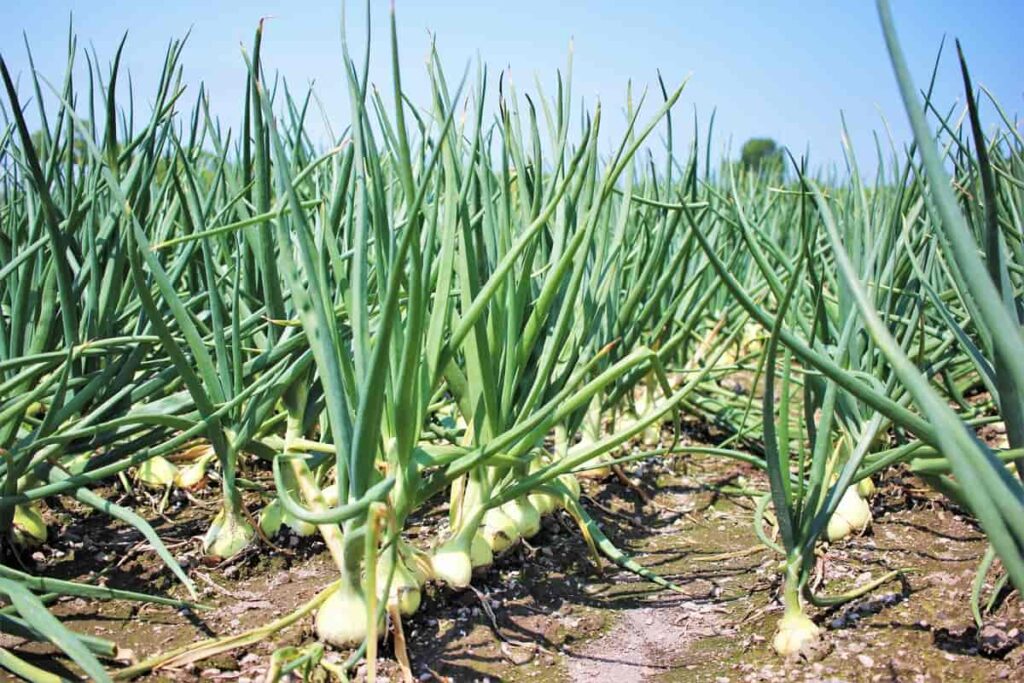
Granular fertilizers are preferred for onions, and they should be applied when the tops are dry. Fertilizing should cease once the bulbs have swollen and bulbing begins.
Specific onion fertilizers, such as those with ratios of 10-10-10 NPK or 12-12-12 NPK , can be used for optimal results.
Key Takeaways:
- Onions require fertilization for optimal growth and bulb development.
- A balanced NPK fertilizer (10-20-10) is recommended at planting for a healthy root system.
- Straight nitrogen (21-0-0) should be applied every 2-3 weeks after 3 weeks to promote foliage growth.
- Organic options like well-rotted manure and compost can provide important nutrients.
- Granular fertilizers are preferred for onions, and they should be applied when the tops are dry.
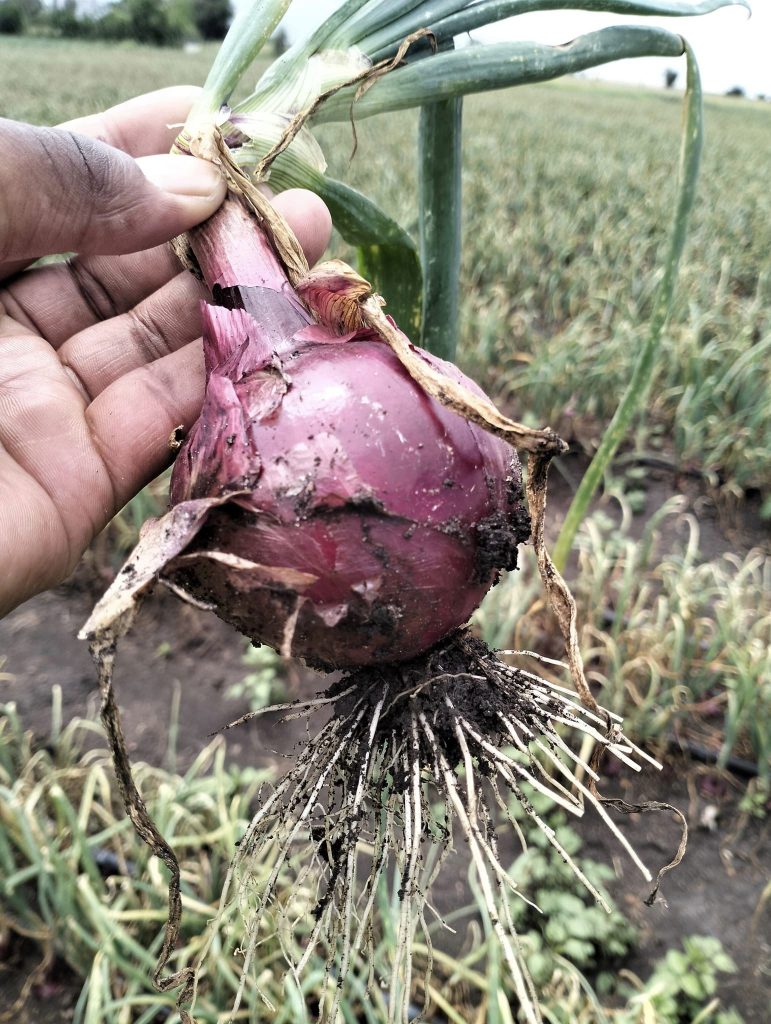
Types of Organic Fertilizers for Onions
Organic fertilizers offer a natural and environmentally friendly option for promoting onion growth. Here are some recommended organic fertilizers that can benefit your onions:
Fish Emulsion
Fish emulsion is a well-balanced fertilizer rich in nitrogen, phosphorus, and potassium. It provides the essential nutrients that onions need for healthy development. Fish emulsion is easily absorbed by plants and can be applied as a liquid fertilizer.
Compost
Compost is a valuable source of organic matter and nutrients that can improve soil structure and fertility. It enhances the overall health of the soil and provides a slow-release supply of nutrients, promoting steady onion growth.
Bone Meal
Bone meal is high in phosphorus and nitrogen, which are vital for root development. Adding bone meal to the soil during planting helps establish strong onion roots and promotes healthy bulb formation.
Blood Meal
Blood meal is a nitrogen-rich organic fertilizer that stimulates foliage growth. It provides a quick source of nitrogen for onions, resulting in lush foliage and larger onion bulbs.
Kelp Fertilizer
Kelp fertilizer offers a range of nutrients and growth-enhancing compounds. It can improve overall plant health, enhance nutrient uptake, and increase onion yield. Kelp fertilizer can be applied during different stages of onion growth to support healthy development.
These organic fertilizers can be used alone or in combination to meet the nutrient requirements of your onions. Experiment with different fertilizers and find the best combination that works for your onion farm.
Synthetic Fertilizers for Onions
When it comes to fertilizing onions, synthetic fertilizers are a popular choice due to their availability and ability to provide the necessary nutrients for optimal growth. Several top-rated synthetic fertilizers can be used to promote onion development and increase yield.
Ammonium Sulfate
Ammonium sulfate is a commonly used synthetic fertilizer for onions. It is rich in nitrogen, which is essential for promoting lush foliage growth. Nitrogen helps the onion plants develop strong leaves and stems, contributing to overall plant vigor and health.
When applying ammonium sulfate, it is important to follow the recommended rates to avoid over-fertilization.
Calcium Nitrate
Calcium nitrate is another synthetic fertilizer that can benefit onion growth. In addition to providing nitrogen, calcium nitrate also supplies calcium, which is important for cell wall development and disease resistance.
This fertilizer can promote healthy root growth and improve bulb development in onions. Similar to ammonium sulfate, it is crucial to follow the recommended rates when applying calcium nitrate.
Granular Balanced Fertilizers
Granular fertilizers with balanced ratios, such as 10-10-10 or 12-12-12, can also be used for onions. These fertilizers provide a mix of nitrogen, phosphorus, and potassium, which are essential for overall plant health and development.
The balanced ratios ensure that the onion plants receive a well-rounded nutrient supply, supporting their growth needs throughout the growing season.
| Fertilizer | Nutrient Ratio | Benefits |
|---|---|---|
| Ammonium Sulfate | 21-0-0 | Rich in nitrogen for foliage growth |
| Calcium Nitrate | 15.5-0-0 | Supplies nitrogen and calcium for root and bulb development |
| Granular Balanced Fertilizers | Various (e.g. 10-10-10, 12-12-12) | Provides a balanced mix of essential nutrients |
When using synthetic fertilizers, it is important to closely follow the application instructions provided by the manufacturer.
Applying the correct amount of fertilizer at the right time will ensure optimal results and prevent the risk of over-fertilization, which can harm the onion plants.
Additionally, it is advisable to perform a soil test prior to fertilizing to determine the specific nutrient needs of your onion.
By utilizing the benefits of synthetic fertilizers, onion growers can provide their plants with the necessary nutrients to achieve healthy growth and abundant yields. Remember to always handle fertilizers with care, following safety guidelines to protect yourself and the environment.
Best Practices for Fertilizing Onions
When it comes to optimizing onion growth with fertilizers, following best practices is essential. By implementing these onion fertilizer tips, you can ensure that your onions receive the nutrients they need for healthy development and enhance their overall growth.
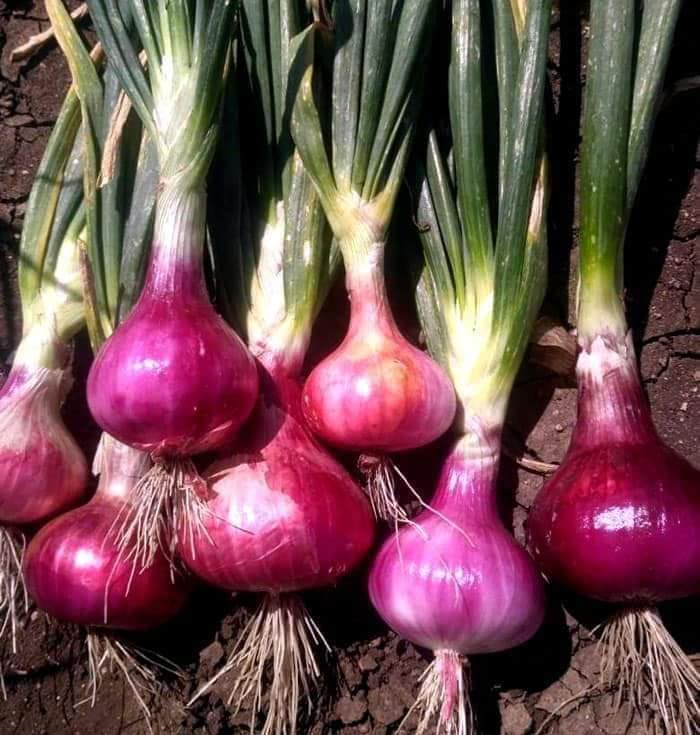
Timing and Rate:
Timing is crucial when fertilizing onions. It is essential to apply the fertilizer when the onion tops are dry to avoid any potential damage. Additionally, it is recommended to follow the recommended rate listed on the packaging. This ensures that you provide the onions with the right amount of nutrients without overdoing it.
Granular Fertilizers:
Onions respond best to granular fertilizers as opposed to liquid fertilizers. Granular fertilizers provide a slow release of nutrients, allowing the onions to absorb them gradually over time. This is particularly beneficial for their growth and development.
Application Technique:
For optimal results, create a small furrow, approximately 2-3 inches deep, between the rows of onions. Work the fertilizer into the soil within these furrows. After applying the fertilizer, ensure to water the furrows well to facilitate nutrient absorption.
Once the bulbs have swollen, typically around mid-summer, it is important to stop fertilizing the onions. At this stage, they need to prepare for storage, and continuing to apply fertilizer can hinder their ability to store properly and have a longer shelf life.
| Best Practices for Fertilizing Onions | Summary |
|---|---|
| Timing and Rate | Apply fertilizer when onion tops are dry and follow the recommended rate listed on the packaging. |
| Granular Fertilizers | Use granular fertilizers for slow release of nutrients and better absorption by onions. |
| Application Technique | Create furrows between rows, work fertilizer into the soil, and water well after application. |
| Stop Fertilizing | Once the bulbs have swollen, cease fertilization to ensure proper storage and longer shelf life. |
By following these best practices, you can optimize the growth of your onions and ensure that they receive the nutrients they require at the right time.
Remember to choose the fertilizer that works best for your farming practices, whether it’s organic or synthetic, and adjust your fertilization schedule accordingly.
With proper fertilization, you can enjoy healthy, thriving onions in your farm.
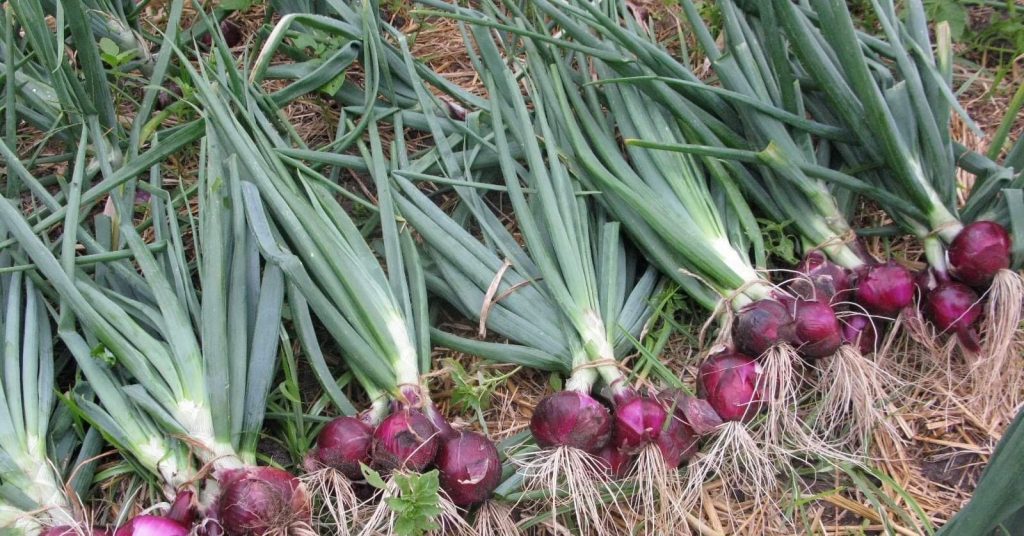
What’s the best fertilizer for onions?
The best fertilizer for onions depends on individual preferences and farming practices. Options include organic fertilizers like fish emulsion, compost, bone meal, blood meal, and kelp fertilizer, as well as synthetic fertilizers like ammonium sulfate and calcium nitrate.
What are some organic fertilizer options for onions?
Organic fertilizers that can benefit onion growth include fish emulsion, compost, bone meal, blood meal, and kelp fertilizer.
These provide natural sources of nitrogen, phosphorus, potassium, and other important nutrients.
Are there synthetic fertilizers available for onions?
Yes, synthetic fertilizers like ammonium sulfate and calcium nitrate can provide the necessary nutrients for onion growth. They are easy to apply and can enhance onion size and yield when used correctly.
What is the recommended timing for fertilizing onions?
Fertilization should be done when the onion tops are dry. Apply a balanced fertilizer at planting to establish a healthy root system, and then apply straight nitrogen every 2-3 weeks after 3 weeks to promote foliage growth. Once the bulbs have swollen and bulbing begins, fertilizing should cease.
